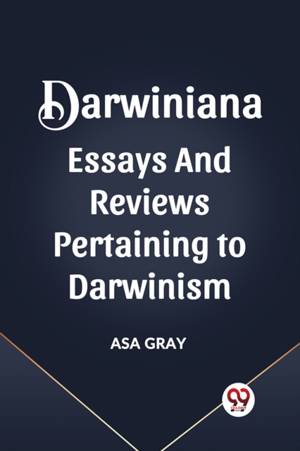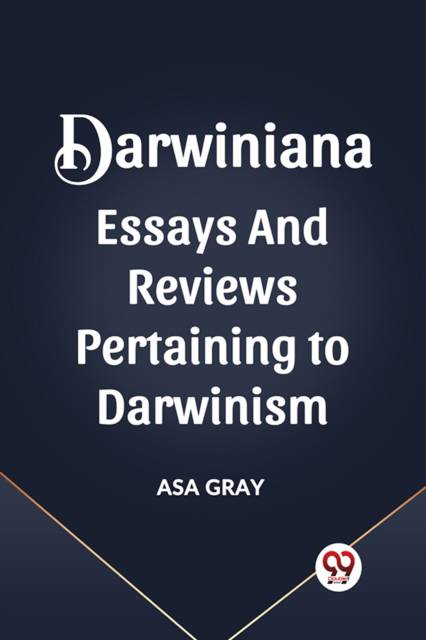
Bedankt voor het vertrouwen het afgelopen jaar! Om jou te bedanken bieden we GRATIS verzending (in België) aan op alles gedurende de hele maand januari.
- Afhalen na 1 uur in een winkel met voorraad
- In januari gratis thuislevering in België
- Ruim aanbod met 7 miljoen producten
Bedankt voor het vertrouwen het afgelopen jaar! Om jou te bedanken bieden we GRATIS verzending (in België) aan op alles gedurende de hele maand januari.
- Afhalen na 1 uur in een winkel met voorraad
- In januari gratis thuislevering in België
- Ruim aanbod met 7 miljoen producten
Zoeken
€ 27,95
+ 55 punten
Uitvoering
Omschrijving
"Darwiniana" by way of Asa Gray is a collection of essays that serves as an outstanding contribution to the talk among science and religion at some stage in the 19th century. As a near collaborator and friend of Charles Darwin, Gray performed a pivotal role inside the dissemination and defense of Darwin's innovative principle of evolution with the aid of natural choice. The essays in "Darwiniana" mirror Gray's efforts to reconcile the rising concept of evolution with non-secular ideals. Gray skillfully navigates the tensions among technology and theology, arguing for the compatibility of evolution and a divine Creator. He explores the theological implications of herbal choice and addresses concerns raised through non secular thinkers, aiming to foster a harmonious dating between science and faith. Gray's writing demonstrates a nuanced know-how of each medical concepts and theological issues. He engages with the challenges posed through the theory of evolution, supplying insights into the broader cultural and highbrow weather of the time. "Darwiniana" stands as a testament to Asa Gray commitment to fostering dialogue and expertise between the nation-states of science and religion. His thoughtful essays now not simplest contribute to the defense of Darwinian evolution but also exemplify the highbrow panorama of the nineteenth century, where scientists grappled with profound questions about the character of life and its courting to spiritual perception.
Specificaties
Betrokkenen
- Auteur(s):
- Uitgeverij:
Inhoud
- Aantal bladzijden:
- 238
- Taal:
- Engels
Eigenschappen
- Productcode (EAN):
- 9789360468026
- Verschijningsdatum:
- 1/01/2024
- Uitvoering:
- Paperback
- Formaat:
- Trade paperback (VS)
- Afmetingen:
- 140 mm x 216 mm
- Gewicht:
- 303 g

Alleen bij Standaard Boekhandel
+ 55 punten op je klantenkaart van Standaard Boekhandel
Beoordelingen
We publiceren alleen reviews die voldoen aan de voorwaarden voor reviews. Bekijk onze voorwaarden voor reviews.









